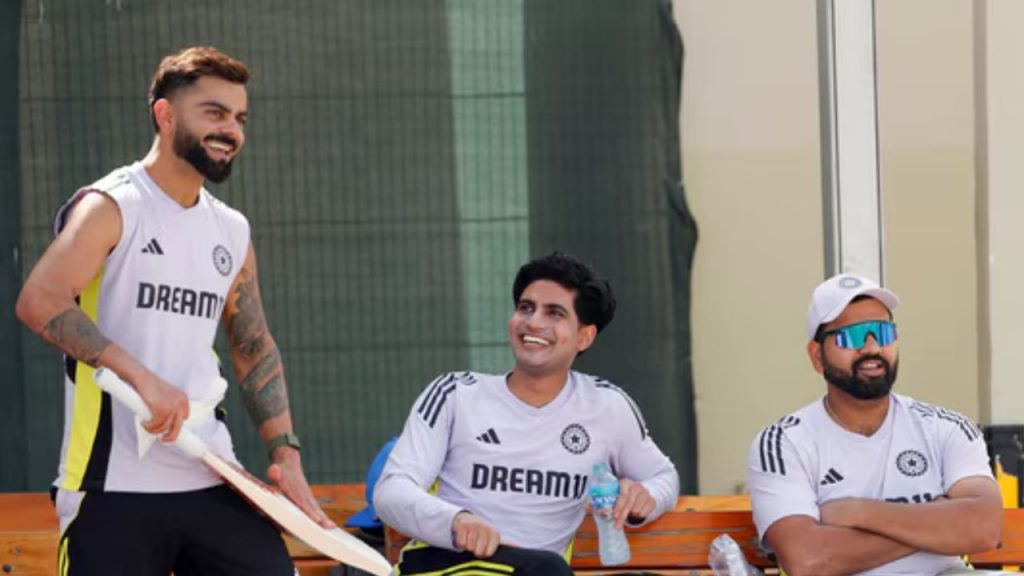In the hallowed grounds of Narendra Modi Stadium in Ahmedabad, a young Indian cricketer etched his name into the annals of Test cricket history on October 3, 2025. Shubman Gill, the 26-year-old prodigy leading India as Test captain, reached a gritty half-century in his maiden home innings as skipper during the first Test against West Indies. Scoring 50 off exactly 100 balls, Gill achieved a feat that eluded legends like Virat Kohli, MS Dhoni, and Rohit Sharma—becoming the first Indian Test captain in nearly 47 years to notch a fifty in his debut home outing. This milestone, matching the legendary Sunil Gavaskar’s record from 1978, signals not just personal triumph but a beacon of hope for a transitioning Indian side.
The Gritty Knock That Broke the Drought
Day two of the Ahmedabad Test unfolded under clear skies, with India responding to West Indies’ modest first-innings total of 244. Opening the batting, Gill walked in alongside Yashasvi Jaiswal, facing a disciplined attack led by Roston Chase and Jason Holder. The pitch, offering subtle turn and bounce, tested the batsmen’s resolve early on. Gill, known for his elegant strokeplay, adopted a measured approach—nudging singles, defending stoutly, and occasionally unleashing drives through covers.
His fifty arrived with a single off Chase, met with a roar from the 40,000-strong crowd. It wasn’t vintage Gill flair; it was resilience personified, a nod to the tactical acumen required in the longest format. Tragically, moments later, he fell to a reverse sweep, caught at first slip for 50—unable to convert it into a bigger score, much like his overseas knocks in England earlier this year. Yet, this knock propelled India to a strong position, with the hosts ending the day at 189/3, courtesy of Jaiswal’s anchoring 78*. Gill’s contribution underscored his dual role: not just leading from the front but inspiring with the bat.
Echoes of Unfulfilled Dreams: Past Captains’ Home Blues
To appreciate Gill’s feat, one must rewind to the debuts of his illustrious predecessors. Virat Kohli, assuming full-time captaincy in 2014, scored a mere 3 in his first home innings as skipper against New Zealand in Auckland—no, wait, his home debut came later against Australia in 2014 at Adelaide, but the pattern held: modest starts at home under pressure. Kohli’s early captaincy knocks at home were often overshadowed by team collapses, never crossing 50 in that specific debut scenario.
MS Dhoni, the cool-headed finisher turned skipper in 2008, faced South Africa in his home debut at Kanpur, managing just 12 runs amid a batting meltdown. Rohit Sharma, the modern-day Hitman, took over in 2022 and in his first home Test as full-time captain against Sri Lanka in Bengaluru, aggregated low scores, failing to impose his authority with the bat from the outset. These giants, who between them won 70+ Tests and transformed Indian cricket, couldn’t breach this barrier in their initial home stints as leaders. The 47-year gap since Gavaskar’s era highlights how captaincy’s weight often stifles individual brilliance at home, where expectations run highest.
From Prodigy to Pioneer: Gill’s Captaincy Odyssey
Shubman Gill’s ascent has been meteoric. Debuting in 2020 against Australia, he amassed over 1,800 Test runs at an average north of 35, including five centuries. Appointed the 37th Test captain in May 2025 following Rohit Sharma’s retirement—and amid Virat Kohli’s shock exit from the format—Gill inherited a squad in flux, sans the Big Three’s experience. His England tour earlier this year was a baptism by fire: a drawn 2-2 series where he topped the run charts with 754 runs, including a double-ton of 269 at Edgbaston, shattering Kohli’s record for the highest score by an Indian captain.
Back home, this fifty isn’t isolated. It builds on his unbeaten resilience abroad, blending aggression with maturity. Under Gill, India eyes reclaiming the Border-Gavaskar Trophy next, but this home start reaffirms his credentials as a batsman-captain hybrid, echoing Sourav Ganguly’s mold but with Kohli-esque intensity.
Charting a New Era for Indian Red-Ball Cricket
Gill’s achievement ripples beyond stats. With Kohli, Sharma, and Ravichandran Ashwin retired, India pivots to youth: Jaiswal, Sarfaraz Khan, and Dhruv Jurel form the core. This fifty instills confidence in a side that lost the England series draw but showed fight. It challenges narratives of captaincy curses—where averages dip, as seen with Sharma’s post-2022 slump. Gill’s man-management, praised by coaches like Gary Kirsten for Dhoni-like calm, could foster a fearless environment.
As the West Indies series progresses—India favorites to clinch a 2-0 whitewash—Gill’s knock sets the tone. It whispers of series wins in Australia, WTC finals, and a legacy unburdened by past failures. In an era craving innovation, Shubman Gill isn’t just succeeding; he’s redefining success.

